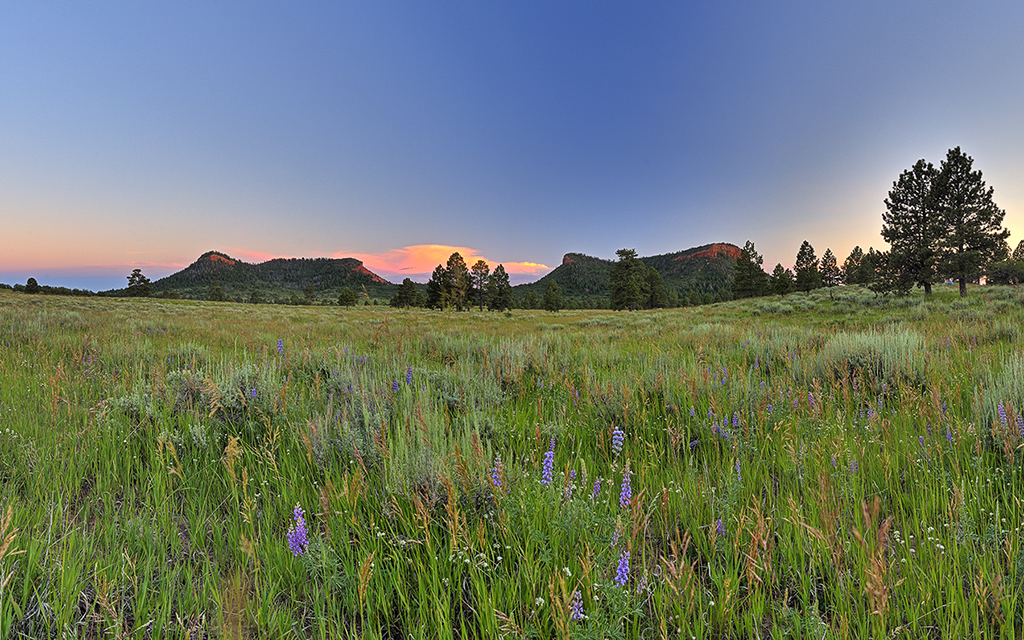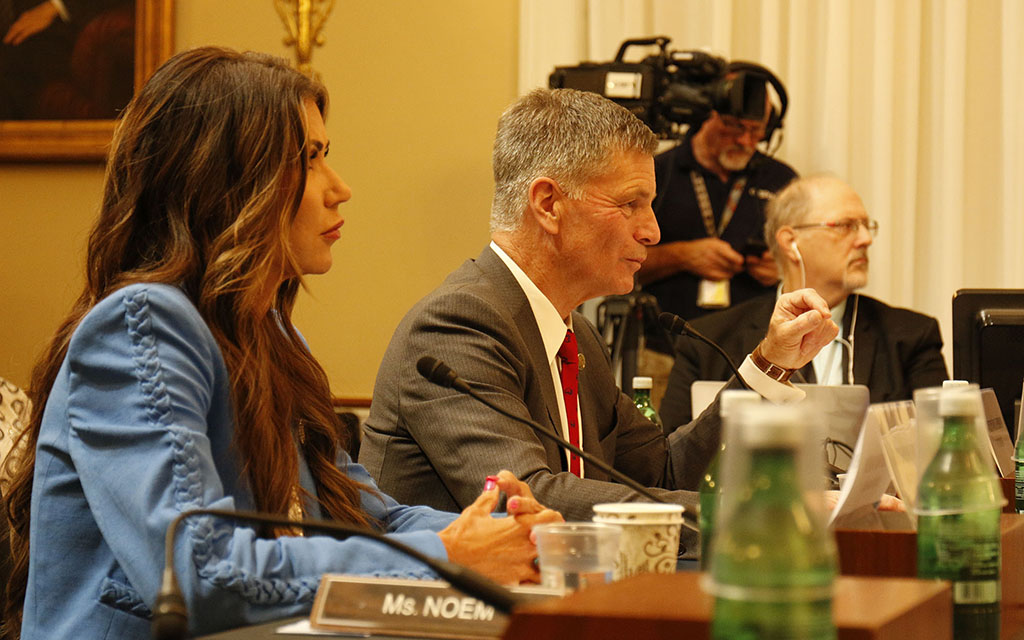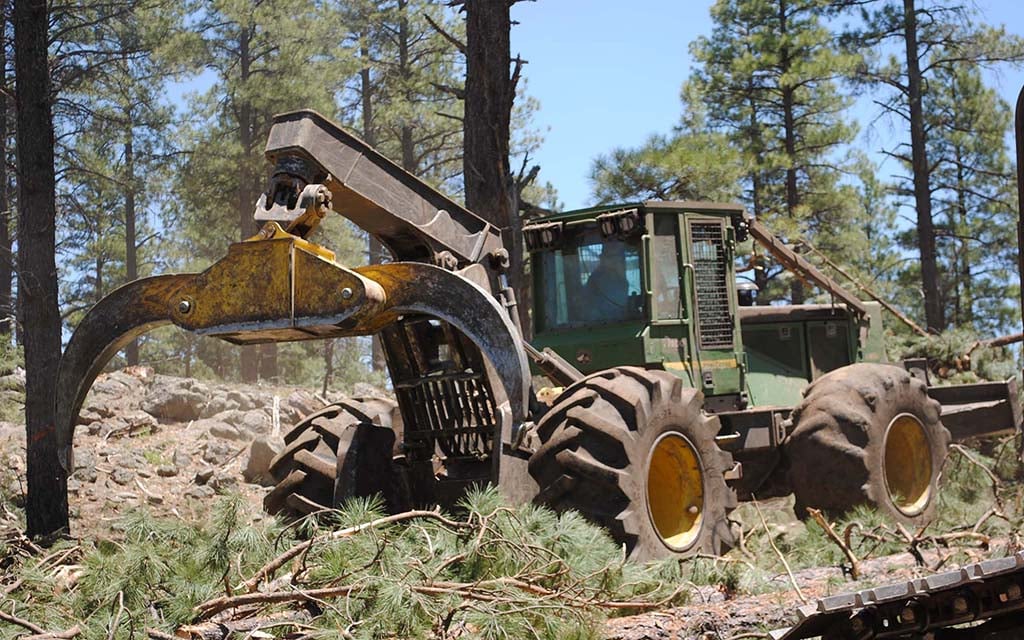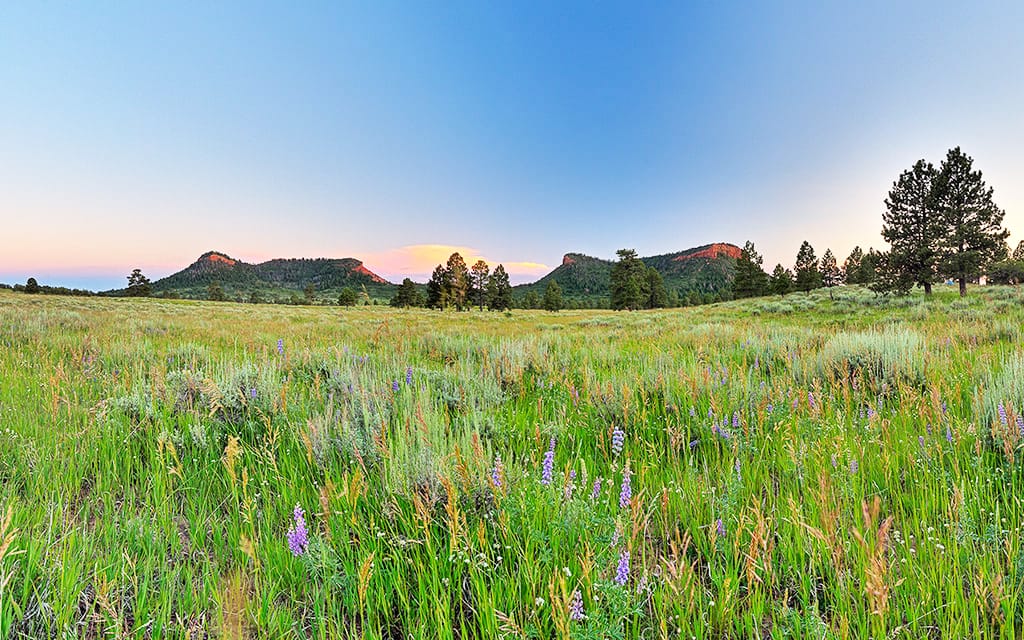Liam Coates/Cronkite News
June 15, 2023Previous
Critics of a Bureau of Land Management plan to make conservation a classification for consideration in the use of public lands called it a regulatory overreach. But defend$ers said it would merely bring balance to the process of considering land use. (Photo by Tim D. Peterson Jr./Bears Ears Coalition)
Rep. Paul Gosar, R-Bullhead City, was one of a number of Republicans critical of the Bureau of Land Management’s proposed Conservation and Landscape Health rule, which he called an overreach by regulators. (Photo by Liam Coates/Cronkite News)

Critics of a Bureau of Land Management plan to make conservation a classification for consideration in the use of public lands called it a regulatory overreach. But defenders said it would merely bring balance to the process of considering land use. (Photo by Tim D. Peterson Jr./Bears Ears Coalition)
Rep. Paul Gosar, R-Bullhead City, was one of a number of Republicans critical of the Bureau of Land Management’s proposed Conservation and Landscape Health rule, which he called an overreach by regulators. (Photo by Liam Coates/Cronkite News)Next
WASHINGTON – A Bureau of Land Management rule that would, for the first time, count conservation as a legitimate use for public lands, along with mining, logging and other uses, is an “offensive” overreach of federal authority, Republicans said Thursday.
The comments came at a House Natural Resources Committee hearing on a bill that would force the BLM to rescind its proposed Conservation and Landscape Health rule, unveiled by the agency in April and now set to take effect in July.
“For decades and decades and decades the good people of Utah have managed these lands in a responsible way,” said Rep. John Curtis, R-Utah, who said he was “having a hard time literally having my head not explode” at the rule.
Curtis, the sponsor of the bill that would block the rule, said that bureaucrats in Washington who “have hardly been to the West other than to fly over it on their way to California, tell us that they know better than we do how to manage these lands.”
But others defended the rule, saying that its classification of lands for “protecting intact landscapes and restoring degraded habitat” would not keep those lands from also being used for mining, forestry or any other uses.
They say the rule will merely bring balance by introducing conservation as a consideration when deciding on land usage, restoring balance. Republicans who are concerned about restrictions on land use like mining and ranching have nothing to fear.

South Dakota Go.v. Kristi Noem, left, and Wyoming Gov. Mark Gordon both testified in support of a bill to block the BLM rule. (Photo by Liam Coates/Cronkite News)
“This rule provides an opportunity for local communities to look at restoration and conservation as a legitimate use of BLM lands. That’s all it does,” Rep. Raúl Grijalva, D-Tucson, said at the hearing. “It doesn’t change the fundamental ground we’re working with, but it provides an opportunity for the future.”
He described the “mythology” that Western states have always been a certain way and that will never change.
“The West has changed, the dynamics are different,” he said. He pointed to his own experience as a county commissioner, saying that people’s anger at conservation plans always subsided when they saw how beneficial the plans were.
The new rule, proposed in April, would add conservation as a category by which land can be classified for protecting landscapes and restoring habitat. The BLM promises the designation would not preclude the areas from also being used for mining, forestry, ranching or any other uses currently allowed under the existing framework.
Nada Wolff Culver, the principal deputy director of the BLM, said in prepared testimony for the committee that the new rule would help the agency “responsibly manage energy development, grazing, mining, recreation, conservation, and other uses” that are part of the bureau’s responsibility.
But Jeff Eisenberg, policy director at the Arizona Cattle Growers’ Association, said assurances from the BLM ring hollow when the agency’s past actions have damaged rancher’s livelihoods.
“There is no special designation they have made in land use on public lands that has not resulted in reducing or eliminating grazing,” he said, and for that reason, ranchers are against it.
Ranchers are already conserving land, Eisenberg said, by following land-use health standards.
“They (BLM) want intact land, they want that,” he said. “And our ranchers are out there meeting those standards. By definition, that’s conservation use of the land – by their own definition.”

A BLM official said the proposed conservation rule would help the agency manage the many uses of public lands. (Photo by Four Forests Restoration Initiative/U.S. Forest Service)
“If they’re making additional special designations, it always, without fail, has the effect of driving ranching out,” Eisenberg said. “Ranching is 155 out of 245 million acres on BLM land, so there’s a significant conflict there.”
Rep. Paul Gosar, R-Bullhead City, was more direct in his criticism of the agency, which he accused of way overstepping its authority with the new rule. He is a cosponsor of the bill to overturn it.
Gosar, one of a chorus of Republicans on the committee who oppose the proposed rule, told Culver to “stay in your lane.” He encouraged states to take the BLM and Forest Service to court to reverse the rule.
“I find this offensive,” said Gosar, who called for an in-person meeting between Arizonans and the BLM. “I think we deserve it and we demand it.”
“We’re the people that are making the laws, not you,” he told Culver. “We’ve got this all backwards. Really backwards.”
Culver told the committee that the public comment period on the rule, originally set to expire next, had been extended for another 15 days.
Other witnesses at the hearing included Wyoming Gov. Mark Gordon and South Dakota Gov. Kristi Noem, both Republicans and both opposed to the conservation rule. Their testimony led Rep. Ruben Gallego, D-Phoenix, to say the committee should hear from witnesses who believed in climate change.
“I’d like to emphasize the importance of inviting witnesses that follow the science and have expertise in the issues we are discussing,” he said, pointing to the importance of this rule in Arizona, which has more than 12 million surface acres under BLM managemen t.
In a press release on the rule, the White House said the proposal would bring “needed balance to the management of more than 200 million acres of land … and ensure that treasured lands and waters are conserved for future generations.”








